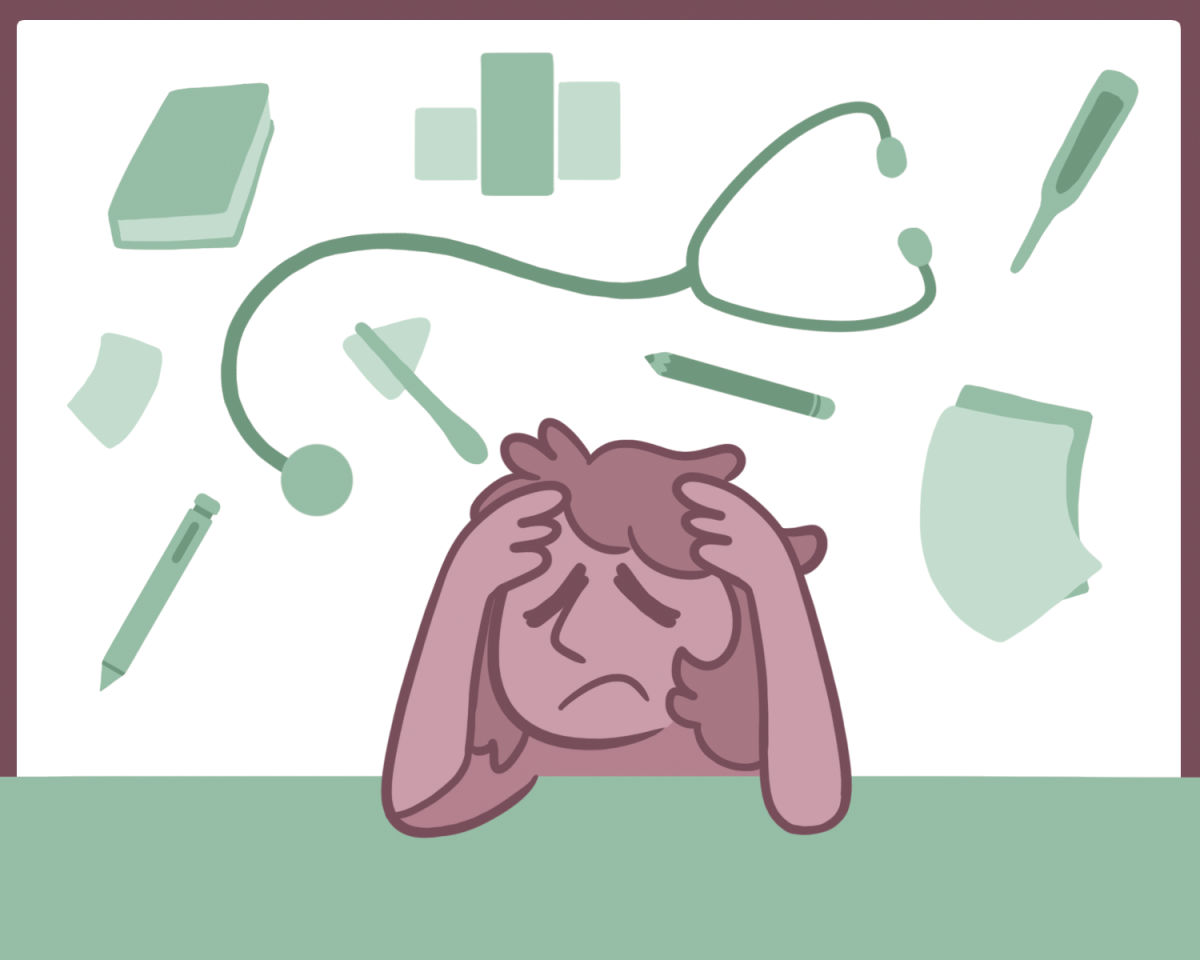If you ask around, you’ll find that UTD is brimming with students looking to pursue a career in medicine. However, it seems for a lot of these students, the concepts of “finding yourself” and “making mistakes” in college are not possible due to outrageous graduate school admissions standards.
Over the past year, the Johns Hopkins University School of Medicine received a 26% increase in applicants, while the Howard University College of Medicine saw an increase greater than 30%. During the pandemic, there has been an overall application surge, with the number of medical school applicants rising by more than 15%. Unfortunately, even with this drastic increase in applicants, many schools still cap their class sizes at a mere 100-200 students. With the growing competitiveness of applying to medical, dental and other healthcare-related graduate schools, admissions committees essentially expect perfection. A standard student matriculating from undergrad tends to have a near-perfect GPA and entrance exam score, hundreds of hours of volunteering and professional experience, lab research, glowing letters of recommendation and to top it all off, stellar essays.
The inordinate amount of pressure that is placed on pre-health students to be perfect can be detrimental to their mental and physical health. In fact, in a 2020 survey of 400 pre-med students conducted by Kaplan Test Prep, almost four in 10 aspiring doctors said they “seriously considered” dropping their plans to pursue a medical career because of the high stress levels they experienced during their pre-health journey. This fact alone defeats the entire purpose of applying to medical school: students become so burnt out that they risk not wanting to apply anymore. The same survey found that 57% of these students reported that self-medicating with alcohol and drugs is a prominent issue among their peers who are dealing with stress. This is understandable considering that pre-health students are expected to juggle working 12 or more hours a week in a lab, studying for intense “weed-out” courses like organic chemistry and crafting the ideal resume to stand out in an ever-growing sea of applicants.
Pre-health culture at UTD centers around competition. Everyone is trying to get the highest score on that biology test or snag a coveted spot to work in a hospital for hours on end. But this competition isn’t friendly or healthy – it’s toxic.
Sophomore neuroscience major and pre-med student Samhita Bandaru elaborates on this environment at UTD, explaining her experiences thus far:
“I am surrounded by toxicity amongst other pre-med peers. Everyone is trying to do whatever they can to win the GPA game and get the best possible resume-building opportunities, and it’s really hard to not compare yourself to others,” Bandaru said. “People hesitate to share studying strategies and materials, making the “every man for himself” mentality more prevalent than ever. It gets very mentally taxing because we work for hours and hours every day without having any idea as to whether our best will ever be good enough.”
A common justification for the rigor of pre-health programs is that the students will eventually work in fields that deal with human lives, so the programs have to be intense to ensure that patients will be in good hands. This mindset is valid but only to a certain extent. Students wanting to work in healthcare should be academically competent (meeting the average GPA requirements of grad schools) and familiar with working under pressure, but when it gets to the point that perfectly capable students are spiraling into harmful periods of self-doubt and seeking professional help due to stress, there’s a problem.
There are a lot of improvements to be made to the path to applying for healthcare-related graduate schools. First and foremost is the concept of exploring more collaboration as part of the pre-health culture, as a huge part of medical training involves working with others to navigate challenging conflicts. Faculty can support this effort by assigning group projects that allow students to work together to create and present a product that teaches the rest of the class about a course concept. Pre-health students should welcome such group tasks and try to reorient their emphasis towards collaboration, not ruthless competition. Another measure that professors should consider is, in addition to rewarding points on exams, weighting part of their course grades towards how effectively students can accomplish team projects.
Clearly, there is much more to be done for the pre-health community on campus. Committing to at least five to six more years of schooling after undergrad for a noble career of service is not something that students should sacrifice their happiness or mental health to do. It’s high time that academic communities evaluate the values by which they are built and reduce the immense stress placed upon pre-health students so early in their careers. After all, the future of healthcare lies in their hands.






